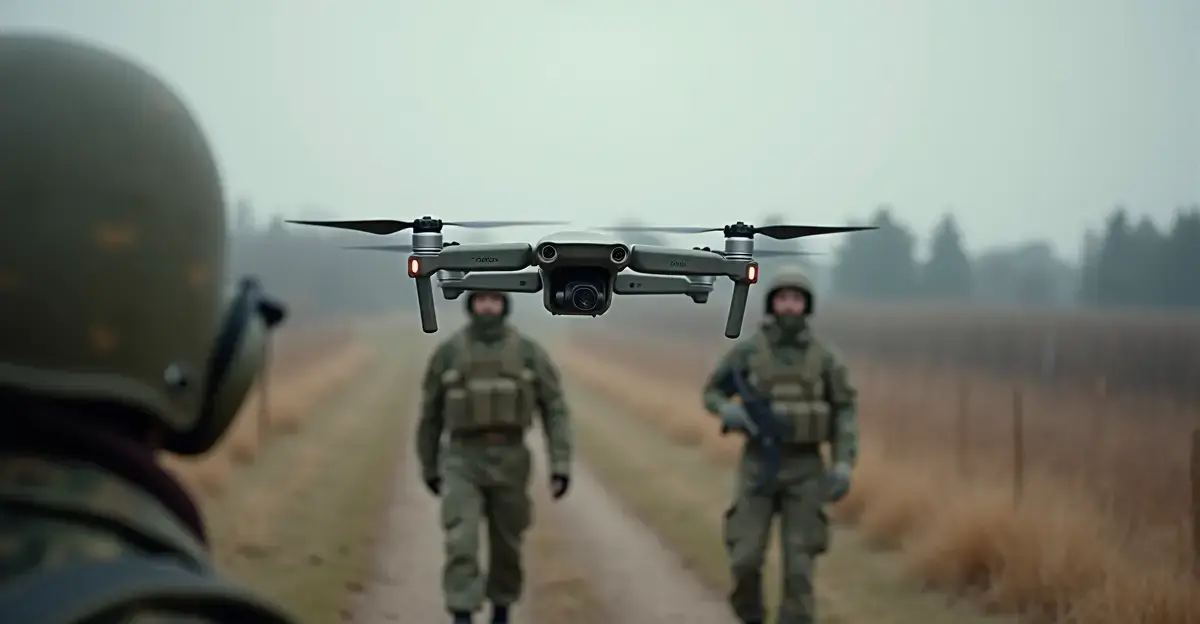EU unveils comprehensive defense roadmap with drone wall by 2027, four flagship projects, and ambitious joint procurement targets to strengthen European security against Russian threats.

Brussels Presents Comprehensive Security Roadmap
The European Commission has unveiled an ambitious defense plan that aims to make the European Union 'ready' to defend itself by 2030, with a particular focus on creating a comprehensive 'drone wall' defense system to be fully operational within two years. The strategic roadmap, presented by EU Defense Commissioner Andrius Kubilius and EU foreign policy chief Kaja Kallas, represents what officials are calling 'D-day' for European security.
Flagship Defense Projects
The plan includes four major 'flagship projects' that will form the backbone of Europe's enhanced security architecture. These include the European Drone Defence Initiative (previously known as the 'drone wall'), Eastern Flank Watch for border protection, a European Air Shield against missile threats, and a European Space Shield to protect critical space assets. 'What Europe and its member states do until the end of this decade will determine the security of the continent for the entire century,' begins the 15-page document outlining the path to 2030.
The urgency for these measures has been heightened by recent security incidents, including multiple drone incursions into EU airspace and Russian military aircraft violating Estonian airspace. 'The danger is not gone when the war in Ukraine is over,' Kallas emphasized during the presentation. 'It is clear that we must strengthen our defense against Russia.'
Ambitious Targets and Funding
The roadmap sets ambitious targets, including increasing joint procurement of defense equipment from the current less than 20% to at least 40% by 2027. Additionally, the plan calls for reskilling 200,000 workers by 2026 to work in the defense industry. The total cost of strengthening European security is estimated to run into hundreds of billions of euros, with the EU already offering countries the possibility to take on debt that doesn't count against strict budget rules.
Commissioner Kubilius drew comparisons to the COVID-19 crisis, noting that while healthcare remains a national competence, the Commission successfully purchased vaccines for all willing member states at high speed. 'Something similar could now happen in the defense field,' he suggested, indicating that unconventional measures might be necessary given that the EU is 'in combat,' as Commission President Ursula von der Leyen previously described the situation.
NATO Cooperation and Industrial Challenges
The plan emphasizes close cooperation with NATO to avoid duplication of efforts. According to NATO Secretary General Mark Rutte, 'the cooperation between the EU and NATO is excellent and the plans of both organizations fit seamlessly together.' However, the initiative faces significant challenges, including technology gaps, supply chain dependencies on China for rare-earth materials, and the need to find 600,000 skilled workers by 2030.
The Netherlands has already indicated its willingness to work with Croatia and Latvia on the European drone defense initiative. The proposals will be discussed next week at the European summit in Brussels, where leaders are expected to endorse the strategic direction while working out implementation details.
For more information on the EU's defense initiatives, visit the European Commission's official announcement.

 Nederlands
Nederlands
 English
English
 Deutsch
Deutsch
 Français
Français
 Español
Español
 Português
Português









